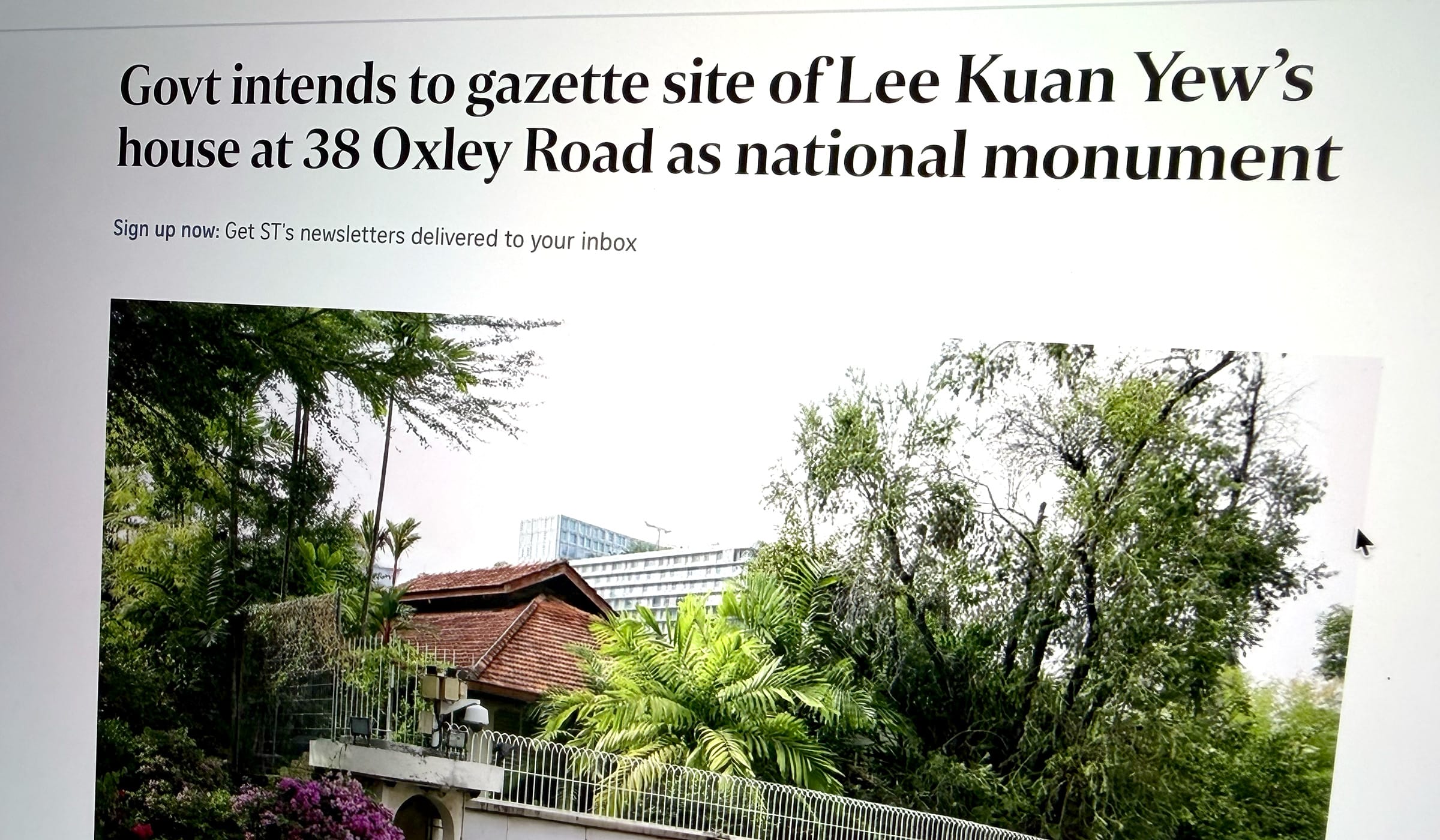As you well know, the government has decided to gazette the Lee family house, which is the continued topic of a dispute, as a national monument. And the reactions to the decision already show that the property is going to be far more valuable for the opposition than the PAP.
I've always found the argument that the ruling party intends to turn the house into some sort of a shrine to Lee Kuan Yew in order to indoctrinate future generations about the PAP's role in building up the country laughable.
Whether you like it or not, the man is the founding father of the modern city-state and there is not a Singaporean who would not know him or have been taught about him and his accomplishments at school.
Every single thing around reminds everybody in Singapore of his and the PAP's role in turning the island from a swampy harbour into a modern metropolis.
The party has had full control over the parliament for sixty years and, by allegations of the same people railing against Oxley's preservation, is in control of state media, allowing it to tell Singaporeans whatever it wants to.
But a relatively old house is suddenly necessary for it to entrench itself further in people's minds?
A single building – and not particularly impressive one either – is not going to influence anything. It's going to silently sit in the side road where it has always been, open to visitors curious to see where the major decisions in the country's history were made. That's all.
If anything, it is a major headache for the party, given that Lee Kuan Yew himself provided conflicting opinions on its future, which are now a source of attacks on the PAP.
In a remarkable example of doublethink, the government's detractors say that it both disregards its own founder's wishes AND seeks to deify him by preserving his residence.
All of a sudden the people who had actually dismissed and criticised the old man while he was alive started trying to portray themselves as his defenders, as if seeking to claim share of his legacy, alleging that the current government is departing from it (as exemplified by the exotic alliance of Lee Hsien Yang with a second-rate ex-PAP backbencher Tan Cheng Bock).
Demolition would solve PAP's problems
In reality demolition of the building would serve the PAP more than anybody else.
The opposition would no longer be able to bark about "idolatry" or how the government seeks to brainwash Singaporeans, and Lee Hsien Yang would finally shut up as he would lose the only reason to remind the nation of his otherwise inconsequential existence as a multimillionaire in fake exile.
None of the usual complainers would be able to peddle conspiracy theories about how the PAP trampled LKY's wishes either.
All problems caused by the yearslong conflict would gone by turning the building into a pile of rubble.

That's why the prudent decision to gazette it as a monument – preserving one of few tangible elements of the nation's history – is a godsend for the government critics.
Every single time the building appears in the media they're going to be able to claim that it's a shameful example of the PAP's overreach, while the runaway prodigal son can now continue his shameful habit of taking to social media a few times per year, whining about how the government is trying to monopolise his father's legacy (which he himself has trampled by siding with the opposition).
But if history teaches us anything it's that the PAP does not shy away from making tough but responsible decisions, even against the loud complaints of some (or many). In Lee Kuan Yew's own words: "I ignore polling as a method of government. I think that shows a certain weakness of mind - an inability to chart a course. Whichever way the wind blows, whichever way the media encourages the people to go, you follow. If you can't force or are unwilling to force your people to follow you, with or without threats, you are not a leader.”
Fortunately, his successors have taken this lesson to heart – even when it was more convenient for them to ignore it.





